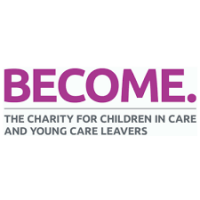Only 13% of pupils who were looked after continuously for 12 months or more (at 31st March 2015) progressed to higher education by age 19 (by 2018/19) compared to 43% of all other pupils. Further, only 1% of children looked after continuously for at least 12 months progress to high tariff university (compared with 11% of other pupils). This rate has remained static since 2009/10.
What Works for Children’s Social Care (WWCSC), the Centre for Transforming Access and Student Outcomes in Higher Education (TASO), Become, and the National Association of Virtual School Heads (NAVSHs) are working together with a long-term vision to change the statistics above.
Project Springboard has two overarching aims. Firstly, to help young people with care experience see their social identity as compatible with college or university. Secondly, to help young people with care experience feel more supported and informed in their decision-making about college or university and ensure they are aware of the support (financial and otherwise) available.
The intervention involves sending young people in care aged 16-18, a personalised letter from someone who also has care experience and has gone on to college or university. These letters encourage young people to think about applying to college or university and set out some of the support on offer. They also include a leaflet that signposts young people to Become’s Propel website (higher education website for care leavers) and the free Become Care Advice Line (0800 023 2033). As part of the project we are funding an additional Become advice line advisor for one year to provide one-to-one, tailored advice on applying to college or university and accessing support.
In addition, we have created videos with students who have care experience sharing their experience of college and university and the support available. These videos have been shared on social media and on Become’s Propel website (with the students’ consent).
Letters were sent out in November 2020, with a further reminder letter in March 2021. WWCSC will carry out a mixed-methods pilot evaluation of the project to explore evidence of promise, the feasibility and readiness for a potential future trial and to provide an overview of the cost of delivering the intervention.
Background: This project builds on previous research by the Behavioural Insights Team (BIT). BIT conducted a clustered randomised controlled trial, between 2014-7, and found that sending a personalised “nudge” letter to disadvantaged students from someone they could identify with, was effective at raising the number who apply to, and accept offers from, selective universities.


